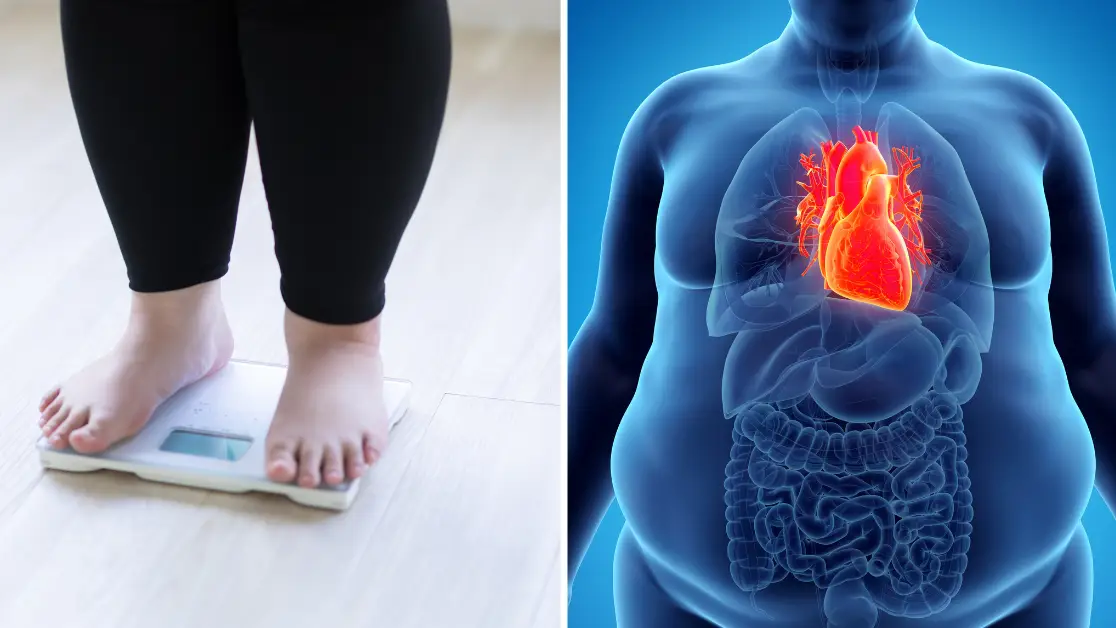
For decades now, a person's BMI has been used to indicate how physically healthy they are, as well as whether or not they could be classified as 'obese'.
Apparently, however, a group of medics believe this system is totally outdated, and doesn't actually reflect how many clinically overweight people there are in the world.
Some time back in the 2010s, obesity was categorised by doctors as a public health crisis - with more and more overweight people going on to receive heart disease diagnoses, as well as Type II diabetes. The risk of both cancers and strokes was also ruled as being on the rise.
As we say, BMI - or, body mass index - was previously used as a means of defining whether or not a person constituted as 'obese'.
Advert

What is BMI?
Doctors check a person's body mass index by dividing their weight in kilometres by the square of their height in metres.
If this number was above 30, the individual was classified 'obese'.
In the cases of BMIs over 40, they were ruled as 'severely obese'.
This has been common practice for as long ago as the 1830s - and with that in mind, some doctors believe we need to make some amendments to the technique.

What else can indicate obesity?
Dr Robert Eckel, chair of atherosclerosis with the University of Colorado Anschutz Medical Campus, believes as part of an international commission that other categories and signs should be identified and added to the definition of obesity - clinical and preclinical obesity.
Clinical obesity would be used to describe a chronic disease affecting organ function or daily routine - meaning sufferers are likely to struggle washing themselves, dressing, etc, because of their extreme body fat.
18 diagnostic criterion for this category were explained by a new commission, including the likes of breathlessness or wheezing, heart failure, joint stiffness or pain (particularly in the knees or hips), reduced movement, and dysfunction of kidneys, upper airways, metabolic organs, the nervous, urinary and reproductive systems and the lymph system.
When it comes to preclinical obesity, the commission says that this would be characterised by normal organ function, with a heightened risk of the likes of clinical obesity, Type 2 diabetes, heart disease, certain types of cancer and mental illness.

How else can we measure potential obesity?
The newly-proposed theory now uses the way in which fat is distributed through the body as a means of assessing whether or not someone should be considered 'obese', as well as how this fat affects both organ function and daily life.
The commission in question suggests several other methods should be used to assess possible obesity, either using...
- One measurement of body size (by assessing waist circumference, waist-hip ratio, and waist-height ratio), and BMI
- Two measurements of body, not looking at BMI
- Direct body fat measurement with a bone density scan, regardless of BMI
- Assumption of excess body fat if BMI is over 40.
Dr Eckel told press this week that relying on BMI alone to diagnose is 'problematic', adding: "Some people tend to store excess fat at the waist or in and around their organs, such as the liver, the heart or the muscles, and this is associated with a higher health risk compared to when excess fat is stored just beneath the skin in the arms, legs or in other body areas.
He went on to explain: "People with excess body fat do not always have a BMI that indicates they are living with obesity, meaning their health problems can go unnoticed.
"Additionally, some people have a high BMI and high body fat but maintain normal organ and body functions, with no signs or symptoms of ongoing illness."